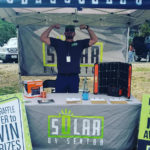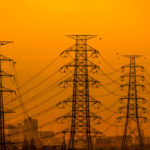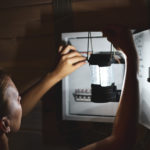OUR FREQUENTLY ASKED QUESTIONS
How do I find out how much I pay for electricity?
If you're charged monthly for your usage, you'll get a bill every cycle for the number of kilowatt hours your household used that month at the current rate. If you have a monthly budget billing plan, your utility takes the number of kilowatt hours you used last year and thinks you'll use roughly the same this year to calculate a monthly average for you to pay. This permits your utility to stretch out your overall power bills over the course of the year. As a result, if you reside in a hot section of the country and use power to run your air conditioner, you'll pay less in the summer than your neighbors who are on a monthly usage billing cycle. However, during the winter, you should expect a greater cost than your neighbors.
Are there any environmental benefits to going solar?
Solar energy, like other renewable energy sources, provides numerous environmental and health advantages. Going solar minimizes greenhouse gas emissions, which contribute to climate change, as well as air pollutants such as sulfur dioxide and particulate matter, all of which can cause health issues.
What is net metering?
Net metering is the system that utilities use to credit solar energy system owners for the electricity produced by their solar panels. With net metering, you only pay for the electricity that you use beyond what your solar panels can generate.
Does solar affect my property value?
According to studies, homes with solar energy systems sell for more than homes without them. However, if you own your solar panel system rather than lease it, your house value will rise. Going solar will actually enhance your property value more than a kitchen renovation in most regions of the country.
What solar energy rebates and incentives are available?
Solar subsidies and incentives differ according on where you reside. The largest is the federal investment tax credit (ITC) of 26 percent, which allows you to deduct 26 percent of the cost of your solar energy system from your taxes. Some states provide further tax breaks, and towns and utilities may additionally provide cash rebates or other incentives. Our solar consultants are well-trained and knowledgeable in order to maximize your savings from the start.
Is going solar affordable?
You can afford to go solar if you can afford to pay your electricity bill. There is no catch. While savings vary, $0 down solar financing solutions allow homeowners to own their power and begin saving on their electricity bills immediately following installation/inspection/PTO.
Is my roof going to be a good fit?
Solar panels are best installed on south-facing roofs with little to no shade and enough area to accommodate a solar panel installation. However, if your property lacks the ideal solar roof, there are often solutions. Ground mounts are another excellent alternative as well as tree removal to create more sun exposure. Set up a call to learn more about your possibilities.
How many panels do I need?
The size of your solar energy system will be determined by how much electricity you need each month as well as the weather conditions in your area. We will create a tailored proposal based on your requirements.
Should I replace my roof before installing solar panels?
Solar energy systems can survive for more than 30 years, but they can be expensive to remove and rebuild if your roof has to be replaced. If your roof requires immediate maintenance, you should complete it before completing your solar installation. Solar By Sexton works with local roofers who will repair or replace the roof and include the costs in the price of the solar system, resulting in greater savings and warranty.
How long do the panels last?
Solar panels, in general, are quite sturdy and can endure snow, wind, and hail. The various components of your solar power system will need to be updated at different intervals, but your system should last for 70 years or more.
What happens if I sell my home?
Your solar house will sell for a higher price if you own your solar energy system: studies have proven that solar enhances property values. That is not the case if you lease your system. You must either buy out your lease before selling your house or work with your leasing firm to transfer the lease agreement to the new owner of the home.
How do solar photovoltaic (PV) panels work?
Throughout the day, solar panels capture the sun's energy and convert it to direct current (DC) electricity. Because most homes and businesses use alternating current (AC), the DC electricity is subsequently converted to usable AC electricity by an inverter. At that moment, you can either use the electricity in your home or return it to the power grid.
Do my solar panels generate electricity even when the sun isn't shining?
The quantity of power your solar energy system can create is determined by the amount of sunshine available. As a result, when the weather is cloudy, your solar panels will produce somewhat less electricity and no energy at night. Even if you reside in a foggy city, solar is a wise investment due to high electricity bills and financial advantages.
What happens if there is snow on solar panels?
Because solar panels turn sunlight into power, they cannot produce electricity if they are covered in snow. Snow isn't usually heavy enough to cause structural problems with your panels, and because most panels are inclined at an angle, snow will slip off. If snow falls, your panels are simple to clean and will naturally heat up faster than ordinary asphalt shingles.
Will I still be billed for electricity?
The real answer is "yes" depending on the solar interconnection agreement customers engage in when they're connected to the utility grid, The monthly amount will be calculated and presented in your customized proposal. Having a battery can reduce the amount of monthly and annual cost of electricity exchanged through a "credit" system with the utility company.
How much will solar panel maintenance cost?
Solar panel systems are built of tempered glass and require little to no maintenance over the course of their 70+ year lifespan. Most of the time, you don't even need to clean your solar panels on a regular basis. If something does go wrong, most equipment manufacturers include warranties, however the conditions vary depending on the company.


